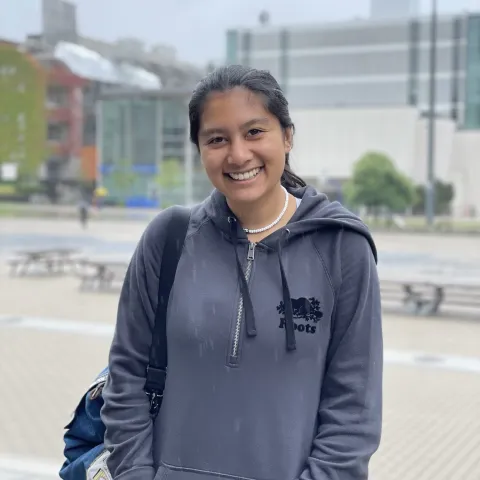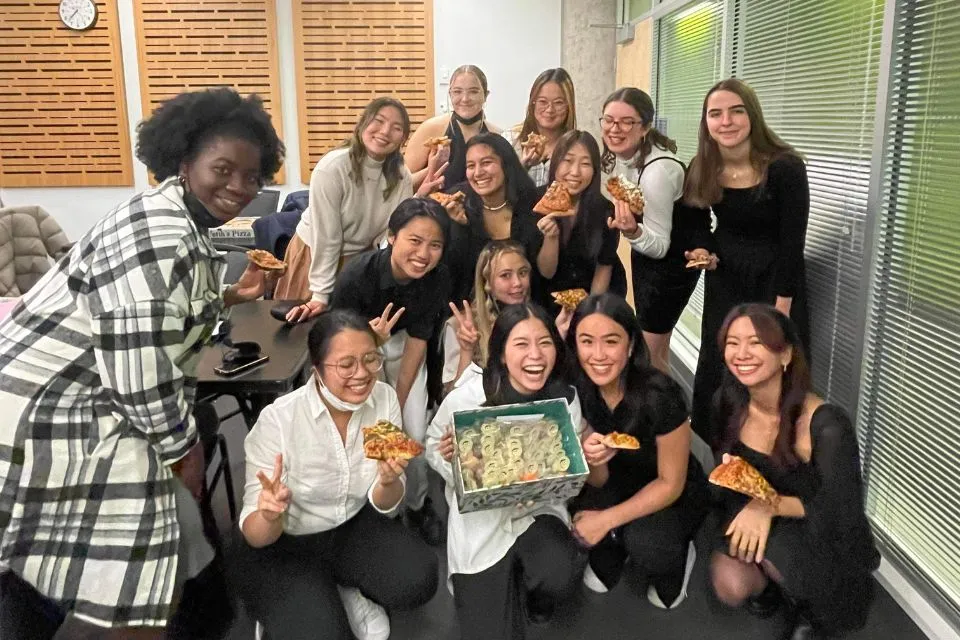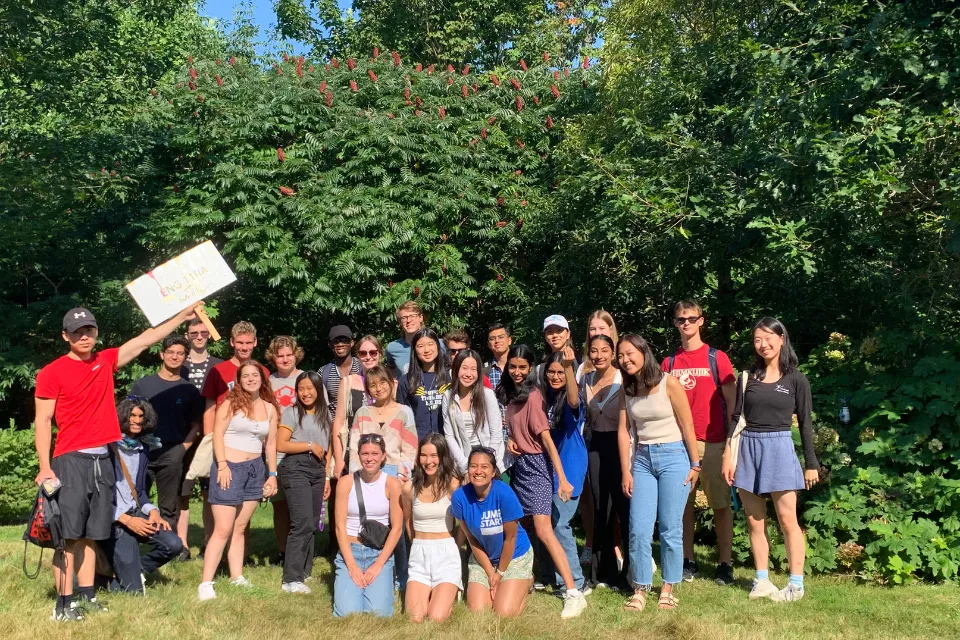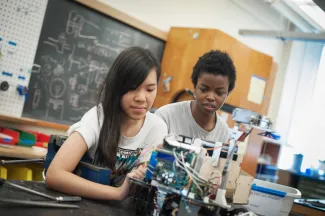“It feels natural to me to combine engineering and geography.” Emiko Wijeysundera plans to use her unique combination of skills to create solutions that improve peoples’ lives.

Emiko Wijeysundera
- Degree:
- Bachelor of Applied Science
- Program:
- Campus: Vancouver
- Year: 2nd year
Why did you decide to do a minor in First Nations and Indigenous Studies?
I struggle to balance my Canadian pride with the horrible truth of how Canada came to be, through the dispossession and ongoing cultural genocide of Indigenous peoples. In first year I took FNIS 100, the introductory First Nations and Indigenous Studies course at UBC, with the effort to better understand my role in reconciliation. The course discussed the historical and ongoing story of Indigenous peoples in Canada and started to develop tools to build positive, informed and mutually beneficial relationships with surrounding Indigenous communities. I found it deeply impactful and thought-provoking. I think this course is valuable for all who call Canada home, and I hope the knowledge I gain from my minor will help me to navigate work in Canada in a meaningful and productive way.
First Nations and Indigenous Studies

Coming into UBC, did you know you wanted to focus on engineering physics?
Not at all. I’m so grateful for that first foundation year. In grade 12 I was struggling to figure out which faculty I belonged in; I was nowhere close to thinking about specializations! In APSC 100, the first semester introduction to engineering class, we had weekly specialization information sessions which I always looked forward to. For most of first year, I leaned towards environmental or chemical engineering, but I stayed open to exploring the different options and ended up loving my physics classes, which veered me in the direction of engineering physics. I fully made up my mind to pursue engineering physics quite late, around a week before the specialization forms were due!
What are some of the highlights of your education so far?
For one project, we had to propose the location for Vancouver’s next protected bike lane. The project was not what I had thought of as a traditional engineering assignment, so it exposed us to some of the lesser-known work that engineers do. We learned to understand and balance the viewpoints of multiple stakeholders affected by the location, consider how the bike lane integrates with public transit, and then plan out the construction phase and how that works with current traffic flow.
Another project I enjoyed was designing a simple rainwater harvesting system for a remote community in BC. We got into the nitty-gritty of various filtering components and there were a lot of physics equations involved!

What extracurricular activities are you involved in?
I’m part of UBC A Cappella and this year I am the musical director of one of the groups, Fermata. I’m also on the Engineering Physics intramural Ultimate team, and am a UBC Sustainability Ambassador. There are so many exciting ways to get involved on campus!
UBC A Cappella Fermata UBC Sustainability Ultimate League Intramurals
How do you see yourself using your engineering and human geography degrees to make a difference in the world?
I will see how it all evolves! One idea that I am considering is trying to work with Indigenous communities in Canada, specifically those up north, and seeing where an engineering degree might be helpful. Sustainable city-planning is another area I am interested in – how can we design cities to contribute more positively to mitigating climate change? The last thing I’m thinking about is using journalism and writing to tell stories about engineering and scientific advancements.






